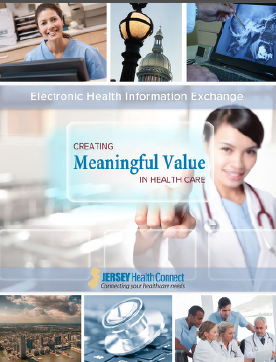Frequently Asked Questions
What is Health Information Technology?
Health Information Technology refers to the use of digital or electronic documents to store and capture your medical information on – as opposed to writing it on paper charts (which are not easily available and are hard to share with your other care providers).
Fortunately, health information technology will also allow your physician/providers to use electronic computer networks to store, manage or exchange your records.
What are the Benefits of Using Electronic Health Information Networks (like JHC)?
- Improved quality of healthcare
- Better treatment outcomes
- Increased patient safety
- Ability to control the rising cost of healthcare
- Enhanced public health and disease surveillance
- Increased access to quality healthcare in underserved communities
What are Electronic Health Records?
A secure electronic version of a patient’s medical history including much of the same information currently in your doctor’s paper files such as your medical history, medications, allergies, lab test results, age, weight, and billing information.
What are the Patient Benefits of E-Health?
E-Health makes you the most important member of your health care team. It creates information organized around you. It gives you control over your own health information and empowers you play a bigger role in your overall health, and/or in the health of your family. You get better quality and safer care when your care providers have a complete picture of your medical history.
- Health information that could save your life is quickly available in an emergency situation instead of paper records stored in multiple locations such as at your doctor’s or specialist’s offices.
- Reduces the need to fill out forms every time you visit a care provider such as a specialist, clinic or visit a hospital. (Insurance forms can also filed automatically).
- Your personal information is stored in a safe and secure system and can only be accessed by your care providers, with your consent.
- You can skip unnecessary duplicate tests, which are wasteful and can be risky.
- Lowers the cost of healthcare delivery.
What is Health Information Exchange?
When your doctor’s office, specialists, hospitals, clinics and labs share your health records electronically through a secure network – this is referred to as Health Information Exchange.
Are my E-Health Records Private and Secure?
Federal law protects your health information whether it is in a paper chart or in an electronic format. Only authorized healthcare providers such as your doctor can create, view, update or exchange your records. All electronic health records follow strict guidelines and are shared through a secure network between your providers such as doctor’s offices, hospitals, emergency rooms or clinics.


